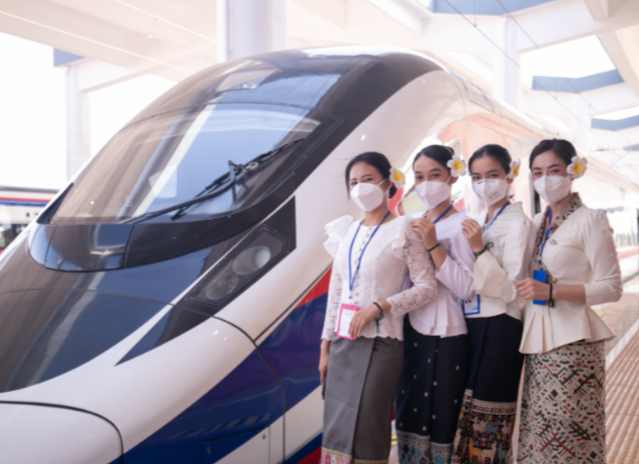VIENTIANE, Dec. 3 (Xinhua) -- The first train of the China-Laos Railway left here on Friday afternoon soon after the cross-border railway is officially put into operation.
Among the cargo loaded on the train are potash products manufactured by a China-Lao joint venture named Sino-Agri International Potash Company.
"We are honored to ship our products through the first train bound for China. The operation of the railway will help boost the potassium production in Laos and its exportation," the company's general manager Tong Yongheng told Xinhua on Friday.
"The operation of the Laos-China Railway is what the Lao people have expected for decades and a demonstration of the relationship between the two countries," Xay Manithong, a local lab technician from the company told Xinhua.
"With the operation of the railway, our company is also embracing better development opportunities, and our staff and local people's lives will also turn better," said Xay.
The 1,035-km electrified passenger and cargo railway, connecting Kunming in southwest China's Yunnan Province with the Lao capital, Vientiane, fully adopts Chinese technical standards and consists of two sections.
Construction of the section in Laos from the border town of Boten to Vientiane started in December 2016, and construction of the section in China from the city of Yuxi to border town of Mohan started in December 2015.
As a docking project between the China-proposed Belt and Road Initiative and Laos' strategy to convert itself from a landlocked country into a land-linked hub, the railway is of great significance to bilateral economic, social and cultural exchanges as well as the regional connectivity.
With a maximum operating speed of 160 km per hour, the travel time from Kunming to Vientiane takes about 10 hours, including customs clearance time.
Tong said the company's annual 1-million-ton potassium production line has entered the pilot phase recently in Khammouane Province of central Laos.
"Our company now is eyeing the second and the third 1-million-ton production lines. We will produce more high-tech products and employ more local people," said Tong. Enditem




 A single purchase
A single purchase









